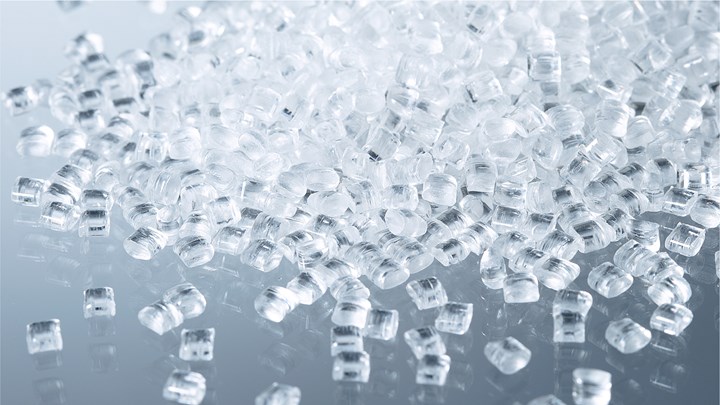Mitsui and Teijin to Develop Biomass-Derived BPA and PC Resins
Mitsui to produce the biomass PBA and Teijin to produce PC using the same BPA.
A collaboration to develop biomasse-derived bisphenol A (BPA) and PC resins is underway between Mitsui Chemicals and , aimed at supporting efforts to achieve carbon neutrality by reducing greenhouse gas (GHG) emissions throughout product lifecycles. The joint initiative follows Mitsui Chemicals’ receipt of ISCC PLUS certification from the International Sustainability and Carbon Certification (ISCC) whereby materials are verifiably tracked through complex value chains, as in the case of biomass-derived raw materials being mixed with petroleum-derived raw materials to create products.

Mitsui Chemicals will now become the first Japanese company to produce commercial biomass-derived BPA offering the same physical characteristics as those of conventional petroleum-derived BPA. Teijin will procure biomass-derived BPA from Mitsui to produce biomass-derived PC resins possessing the same physical characteristics as the company’s existing petroleum-derived PC resins, which will allow these new biomass-derived versions to be used in commercial applications such as automotive headlamps and electronic components.
By expanding sales of products containing plastics produced through biomass conversion, the two companies aim to develop and produce more environmentally friendly products throughout their supply chains. Mitsui Chemicals, for example, is considering expanding its procurement network for biobased hydrocarbons in order to provide stable supplies of related products to the market. The company, which is in the process of acquiring ISCC PLUS certification for biomass naphtha derivatives, has already received certification for phenol, acetone, BPA and alpha-methyl styrene. The aim is to acquire ISCC PLUS certification for all of the company’s phenol-chain products and then begin sales within fiscal 2023 ending in March 2024.
Teijin also expects to acquire ISCC PLUS certification in the first half of fiscal 2023 and thereafter start commercial production of biomass-derived PC resins. Teijin plans to emphasize to customers that conventional petroleum-derived PC resins can be easily replaced with biomass-derived versions for more environmentally friendly products.
Related Content
-
Automotive Awards Highlight Emerging Technologies
Annual SPE Automotive event gives nods to several ‘firsts’ as well as sustainability.
-
The Fantasy and Reality of Raw Material Shelf Life: Part 1
Is a two-year-old hygroscopic resin kept in its original packaging still useful? Let’s try to answer that question and clear up some misconceptions.
-
What is the Allowable Moisture Content in Nylons? It Depends (Part 1)
A lot of the nylon that is processed is filled or reinforced, but the data sheets generally don’t account for this, making drying recommendations confusing. Here’s what you need to know.



